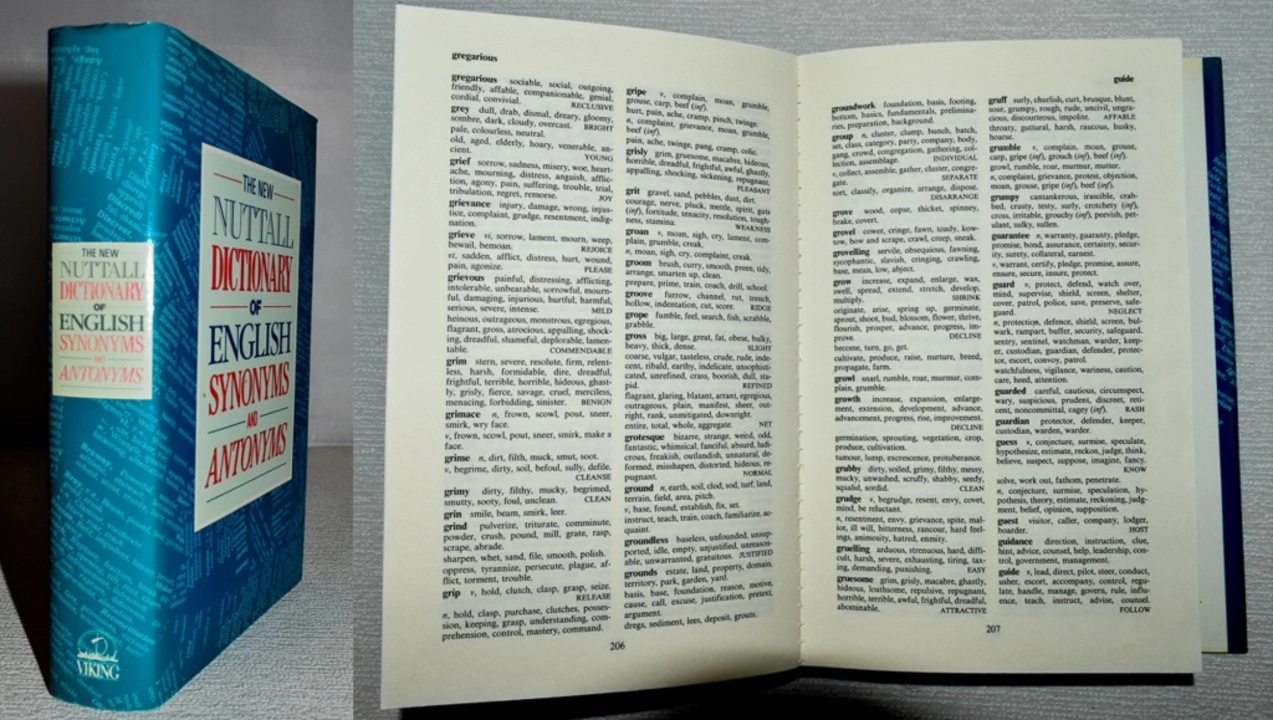What are some words without synonyms or antonyms?
-
Apr, 14 2023
-
0 Comments

Exploring Uniqueness: Uncovering Words Without Synonyms or Antonyms
Words are the building blocks of language, and each one has a unique meaning. But, what about words without synonyms or antonyms? Are there any? And if so, what does that mean?
It turns out that there are indeed words without synonyms or antonyms. These are words that are so specific and unique that they have no other words that can accurately describe them.
For example, take the word susurrus. This is an onomatopoeic word that describes the sound of a murmuring or whispering. There is no other word that can accurately describe this sound, so susurrus must stand on its own.
Another example of a word without a synonym or antonym is ineffable. This word is used to describe something that is so great, it is beyond words. There is no other word that can accurately capture this feeling, so ineffable must be used by itself.
These words without synonyms or antonyms are unique and have a special place in the English language. They are used to describe things that can’t be put into words, or are too specific to have a general word to describe them.
Words without synonyms or antonyms help us to express ourselves in unique ways. They allow us to express emotions and ideas that would otherwise be difficult to convey.
Without these special words, our language would be much more limited. We would be unable to express certain feelings, ideas, or concepts. They give us the freedom to express ourselves in ways that wouldn’t be possible without them.
The Power of Language: Understanding Words Without Synonyms or Antonyms
Language is powerful. Not only does it allow us to communicate with each other, but it also has the power to shape our thinking and influence our decisions. One of the most interesting aspects of language is the fact that some words don’t have any synonyms or antonyms. These words, which are known as “unpaired words”, are unique and special within the English language.
One example of an unpaired word is “awe”. This word has no synonym or antonym because it is used to convey a sense of wonder and admiration. It is a powerful emotion that cannot be expressed as easily with other words. Another example of an unpaired word is “dilemma”. This word has no synonym or antonym because it is used to describe a situation in which someone has to make a difficult choice between two undesirable options.
There are also unpaired words that are used to describe people’s emotions and feelings. For example, the word “solitude” has no synonym or antonym because it is used to describe the feeling of being alone. Similarly, the word “contentment” has no synonym or antonym because it describes a feeling of satisfaction or joy. Finally, the word “jubilant” has no synonym or antonym because it is used to describe a feeling of joy or exuberance.
Unpaired words are special because they allow us to express ourselves in a unique and meaningful way. They allow us to convey emotions and feelings that cannot be expressed as easily with other words. They also help us to better understand the power of language and how it can shape our thoughts and influence our decisions.
Discovering Language Diversity: Examining Words Without Synonyms or Antonyms
It is often believed that language is made up of infinite possibilities, but when it comes to words without synonyms or antonyms, language diversity is taken to a whole new level. Words without synonyms or antonyms are often referred to as “uniquewords” or “isolates” and they are a reminder that language is ever-evolving and is always full of surprises.
The study of words without synonyms or antonyms can provide us with a unique insight into the diversity of the English language. These words are often highly specific and can be used to provide a more accurate description of something than other more general words. For example, the word “unmalleable” is an isolate and means something which cannot be altered or changed, which is more specific than the more general word “rigid”.
Isolates can also be used to express emotions that can’t be described with other words. For example, the word “numinous” is an isolate that describes a feeling of awe or reverence that cannot be adequately described with another word. This feeling is often associated with religious experiences or encounters with the divine.
In addition to providing more accurate descriptions and more nuanced expressions of emotion, isolates can also be used to create unique and interesting writing. By using isolates, writers can create a more vivid and evocative writing style that isn’t possible with more common words. For example, the word “euphuism” is an isolate that describes the use of ornate and florid language, which can be used to create an interesting and unique writing style.
Discovering and learning about words without synonyms or antonyms can be a fun and rewarding experience. It can also provide us with a greater understanding of the diversity of the English language and help us to become better writers. So, if you’re looking to add some spice to your writing, why not start exploring the world of isolates?